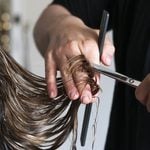6 Natural Supplements That Can Help Treat Acne
Thought acne was something only teenagers worried about? Think again! In fact, up to 8% of those who had clear skin in their youth develop acne as adults. Fortunately, there are a variety of ways to treat acne and control outbreaks—no matter what your age.
What Is Acne?
Pimples and other skin eruptions are the hallmark of acne, a sometimes chronic condition of the face, back, chest, neck, shoulders, and other areas of the body. The most common form (acne vulgaris) encompasses blackheads, whiteheads, and raised red blemishes with semisolid centres. In severe cases (cystic acne), clusters of painful, fluid-filled cysts or firm, painless lumps appear beneath the skin’s surface; both can lead to unsightly permanent pitting and scarring. For teenagers especially, acne can be an embarrassing and emotionally difficult condition.
What Causes Acne
Acne occurs when the sebaceous glands at the base of the hair follicles of the skin secrete too much sebum. This thick, oily substance is normally released from the pores to keep the skin lubricated and healthy. If the sebum backs up, it can form hard plugs that block the pores and cause pimples. Should one of these oil plugs rupture beneath the skin’s surface, a localized bacterial infection can develop.
Hormonal imbalances can lead to an overproduction of sebum—a common problem during adolescence, especially in boys. In women, menstrual periods or pregnancy can also create acne-producing hormonal disturbances. Other acne triggers include emotional stress, the friction or rubbing of clothing against the skin, and certain medications, particularly steroids, contraceptives, or drugs that affect hormone levels. Heredity may play a role as well.
Contrary to popular belief, acne probably isn’t caused by eating chocolate, shellfish, nuts, or fatty snacks or by drinking colas. However, some doctors—and patients—contend that acne can be brought on or aggravated by certain foods or food allergies.
| Some dosages may be supplied by supplements you are already taking. | |
| Vitamin A | Dosage: 25,000 IU a day; reduce dose to 10,000 IU a day when healing is noticed or after 1 month. Use pills or drops. Comments: Women who are pregnant or considering pregnancy should not exceed 5,000 IU a day. |
| Vitamin B6 | Dosage: 50 mg each morning. Comments: Long-term doses of more than 200 mg a day for chronic acne can cause nerve damage. |
| Vitamin C | Dosage: 1,000 mg twice a day. Comments: Reduce dose if diarrhea develops. |
| Zinc/Copper | Dosage: 30 mg zinc and 2 mg copper a day. Comments: Add copper only when using zinc longer than 1 month. |
| Flaxseed oil | Dosage: 1 tbsp. (14 grams) a day. Comments: Can be mixed with food; take in the morning. |
| Evening primrose oil | Dosage: 1,000 mg 3 times a day. Comments: Can substitute 1,000 mg borage oil once a day. |
How Supplements Can Help Treat Acne
Most people will benefit from trying all of the supplements that are recommended in the chart; they can be safely combined. It often takes three to four weeks, or longer, to notice results. All can be used long term, as well as with conventional acne medications.
Vitamin A is important because it plays a role in controlling overproduction of sebum, the root cause of acne. Because it aids in balancing levels of acne-related hormones, vitamin B6 may be useful for acne aggravated by menstrual cycles or menopause. And vitamin C promotes immune system health, helping to keep acne-causing bacteria in check. Taken with any or all of these vitamins, zinc enhances immune function, reduces inflammation, and promotes healthy hormone levels. Because long-term use of zinc inhibits copper absorption, it should be taken with that mineral. It may also help to take zinc along with essential fatty acids: Two excellent sources are flaxseed oil and evening primrose oil. Essential fatty acids aid in diluting the oily sebum, reducing the likelihood of clogged pores.
How to Prevent Acne and Scarring
- Wash daily, using ordinary soap and water.
- Eat a balanced diet; avoid foods you feel may act as acne triggers.
- Choose cosmetics labeled “noncomedogenic” or “oil-free.”
- Avoid picking pimples; it increases inflammation and can cause scarring.
Believe it or not, these 5 Everyday Things Can Also Help Fight Acne!



